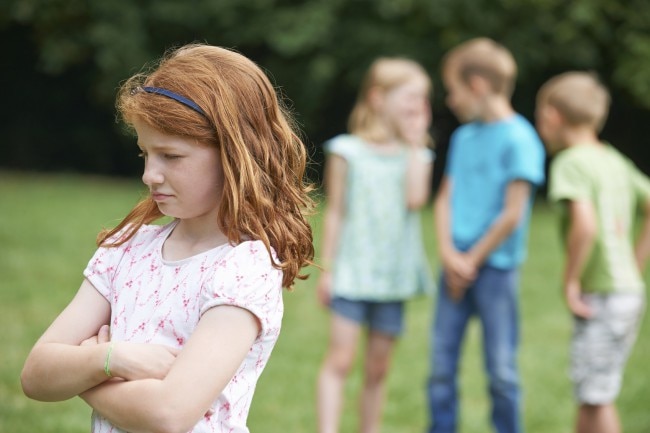Bullying is an age-old problem. However, the conventional wisdom that “children will be children” has given way in the face of mounting evidence that bullying can lead to a host of mental, physical and emotional problems in childhood, adolescence and even adulthood. 
The U.S. Department of Health and Human Services’ website StopBullying.gov describes bullying as unwanted, aggressive behavior among school-aged children that involves a real or perceived power imbalance. Children who are bullied may develop depression and anxiety, feelings of sadness and loneliness, changes in sleep and eating habits, loss of interest in enjoyable activities, health complaints and trouble with schoolwork.
Victims of bullying are more likely to miss, skip or drop out of school than children who have not been bullied. A small number of bullied children eventually retaliate with extreme violence. In 12 of 15 school shooting cases in the 1990s, the shooters had a history of being bullied. Certain groups, like special needs children and lesbian, gay, bisexual or transgender youth, may be the victims of bullying more often according to a 2009 study in the Journal of Youth and Adolescence and a 2010 study in the International Journal of Special Education.
Bullying can take many forms, from the more obvious physical and verbal intimidation, such as making threats or attacking someone physically, to so-called relational aggression, such as starting rumors, spreading gossip, mocking, clique-building and deliberately excluding another child from a group.
Girls are particularly prone to relational aggression, as any teacher can tell you. “Sometimes I have girls who will hurt each other’s feelings by saying mean things or ignoring a friend,” says Debby Ylitalo of San Antonio, Texas, an elementary and preschool teacher of 29 years. “They are pretty good at being mean out of the sight of an adult and can be equally as good in their protests of innocence.”
Sam Medve, EdS, a school psychologist with Aurora Public Schools in Aurora, Colo., says bullying of all kinds is difficult to stop because it happens so often and can be quite subtle. “A kid will just stare at another kid, or mumble under their breath,” he says. Children sometimes are even unsure themselves if they are being bullied, but he tells students, “if it makes you uncomfortable, it’s a problem.”
Off the schoolyard
Bullying doesn’t always occur at school. It can happen at home, in the neighborhood or during after-school activities. Cyber-bullying, such as sending cruel text messages or emails, or posting rumors, embarrassing pictures, videos, websites or fake profiles on social networking sites, is also a growing problem. The Centers for Disease Control and Prevention found that 16 percent of high school students reported being cyber-bullied in 2011.
Medve believes the best way to deal with bullying is to try to prevent it on a classroom and school level by implementing grade-specific anti bullying programs that develop social skills such as empathy, emotion regulation and problem solving. When Medve counsels children who are being bullied, he advises them to ignore the bully if possible, or tell the bully to stop, using a clear, calm voice. If the bullying behaviors continue, the child should walk away and find an adult to intervene, although teens are often more comfortable telling a friend rather than an adult.
In fact, adults are notified in only about one-third of bullying cases, according to the National Center for Education Statistics and Bureau of Justice Statistics 2008–2009 School Crime Supplement. Here are some warning signs that your child may be being bullied:
- Unexplainable injuries
- Lost or destroyed clothing, books, electronics or jewelry
- Frequent headaches or stomachaches, feeling sick or faking illness
- Changes in eating habits, such as suddenly skipping meals or binge eating. Kids may come home from school hungry because they did not eat lunch.
- Difficulty sleeping or frequent nightmares
- Declining grades, loss of interest in school work or not wanting to go to school
- Sudden loss of friends or avoidance of social situations
- Feelings of helplessness or decreased self esteem
- Self-destructive behaviors such as running away from home, harming themselves or talking about suicide
What parents can do
What can you do if your child is bullied? Medve advises talking to your child in depth first and allowing your child to tell you about the bullying when they are ready. Parents often want to have a serious discussion about it at, say, dinnertime, when in fact the child may be more comfortable opening up right before bed, or during a car ride.
“Keep checking in with your child, but let it come from them as to when it’s a good moment to talk,” he said. Then discuss with them what they can do to deal with the bully themselves. Medve notes it’s important to ask children what they feel comfortable saying or doing in the situation, instead of assuming they are willing to stand up for themselves. He advises parents talk to their children about what they can say, right down to the exact words they might use. Of equal importance, parents should ask their children to think of adults they could turn to in the classroom, cafeteria and playground or after school.
Next, talk to your child’s teacher. “It sounds simple, but a lot of times parents don’t,” Medve says. Be clear about what you want. Do you expect the teacher to deal with the situation herself, or would you like to involve the school psychologist or administration? What are your expectations in terms of communicating about it? If addressing the problem with teachers and administrators is not working, you may have no choice but to contact the school superintendent, or even your state’s department of education. If you choose to involve the school administration, “don’t go in yelling and screaming,” Medve advises, “but you have to have that conversation and be an advocate for your child.
